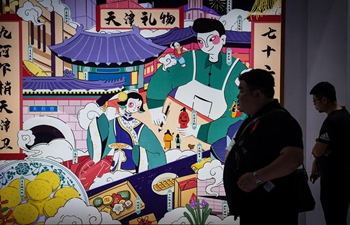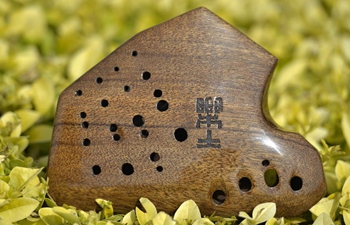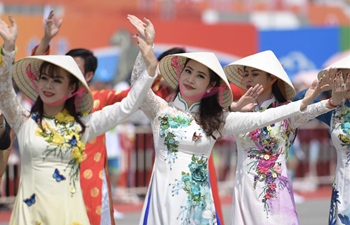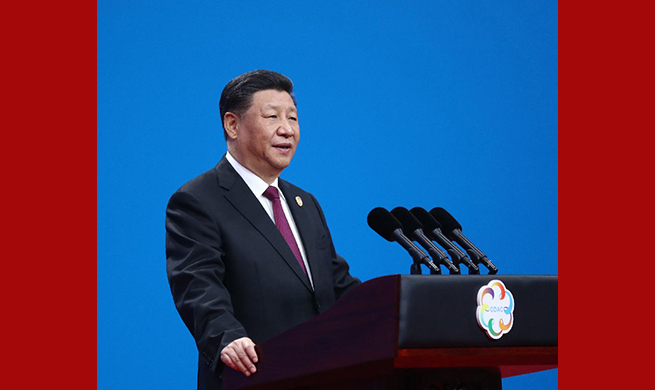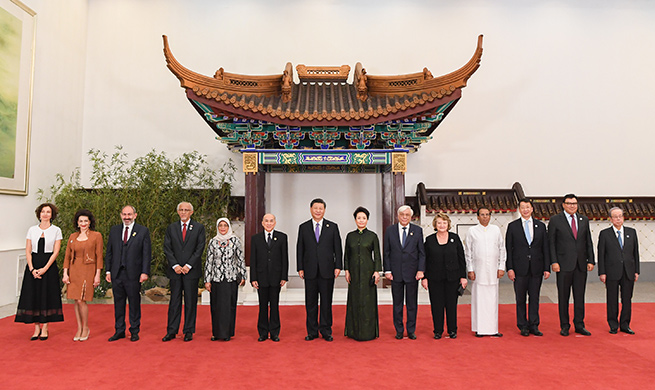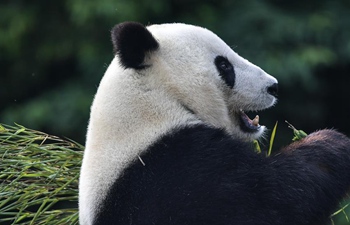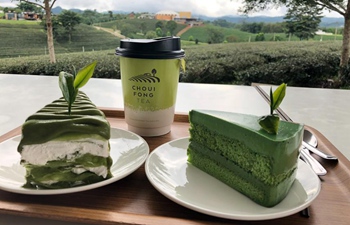WUHAN, May 17 (Xinhua) -- Chinese archaeologists have unearthed a large number of bamboo slips in central China's Hubei Province, many of which recorded knowledge about agriculture, local authorities said.
Those ancient bamboo slips, dating back to the Han Dynasty (206 B.C.-220 A.D.), were discovered in a tomb from a graveyard in the city of Jingzhou.
The excavation of the graveyard was launched by Jingzhou Museum by the end of 2018, and 18 tombs were found.
A total of 4,546 bamboo and wooden slips were excavated from the tomb, the cultural relics protection center of Jingzhou said, adding that more than 1,000 bamboo slips have been cleaned and scanned, and paleographers are currently trying to interpret them.
Experts said that, based on some phrases and words being recognized, those bamboo and wooden slips were confirmed to be related to farming knowledge, annals and laws.
Jiang Lujing, one of the paleographers, said some interesting contents recorded on the bamboo slips have been interpreted.
The NO. 767 bamboo slip depicted people used cinnamon to whiten their teeth in the past, while the NO. 833 bamboo slip recorded a feed formulation for cattle.
Prior to the excavation of the over 4,000 bamboo slips, 324 other bamboo slips, dating back to the Warring States Period (475 B.C.-221 B.C.) were discovered in another graveyard in Jingzhou. The bamboo slips recorded the posthumous titles and deeds of 12 emperors and politicians.
Experts said the findings are important to help study the history and society during these periods.
The excavation and interpretation of those bamboo slips have been confirmed as major archaeological projects of China.





